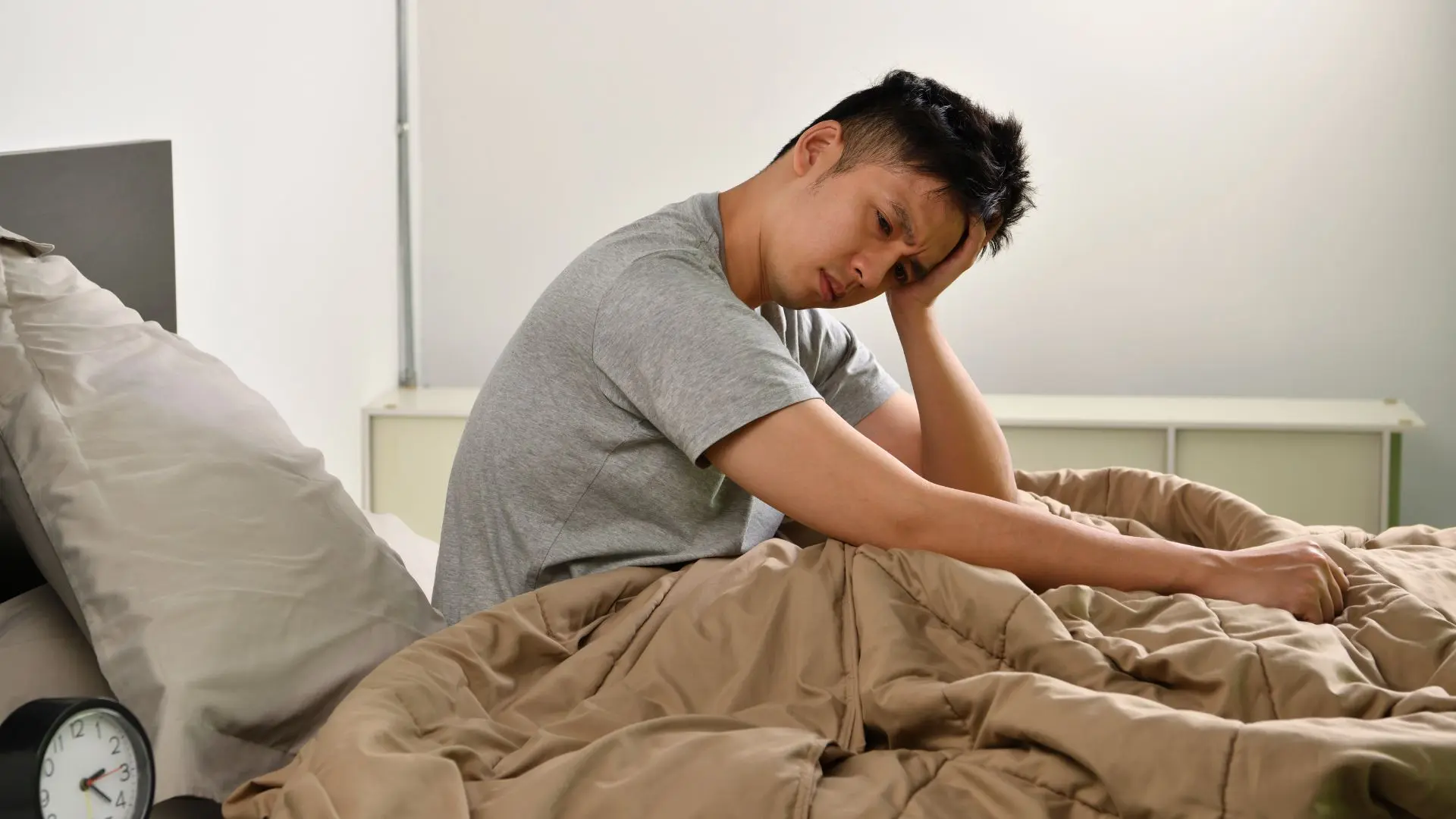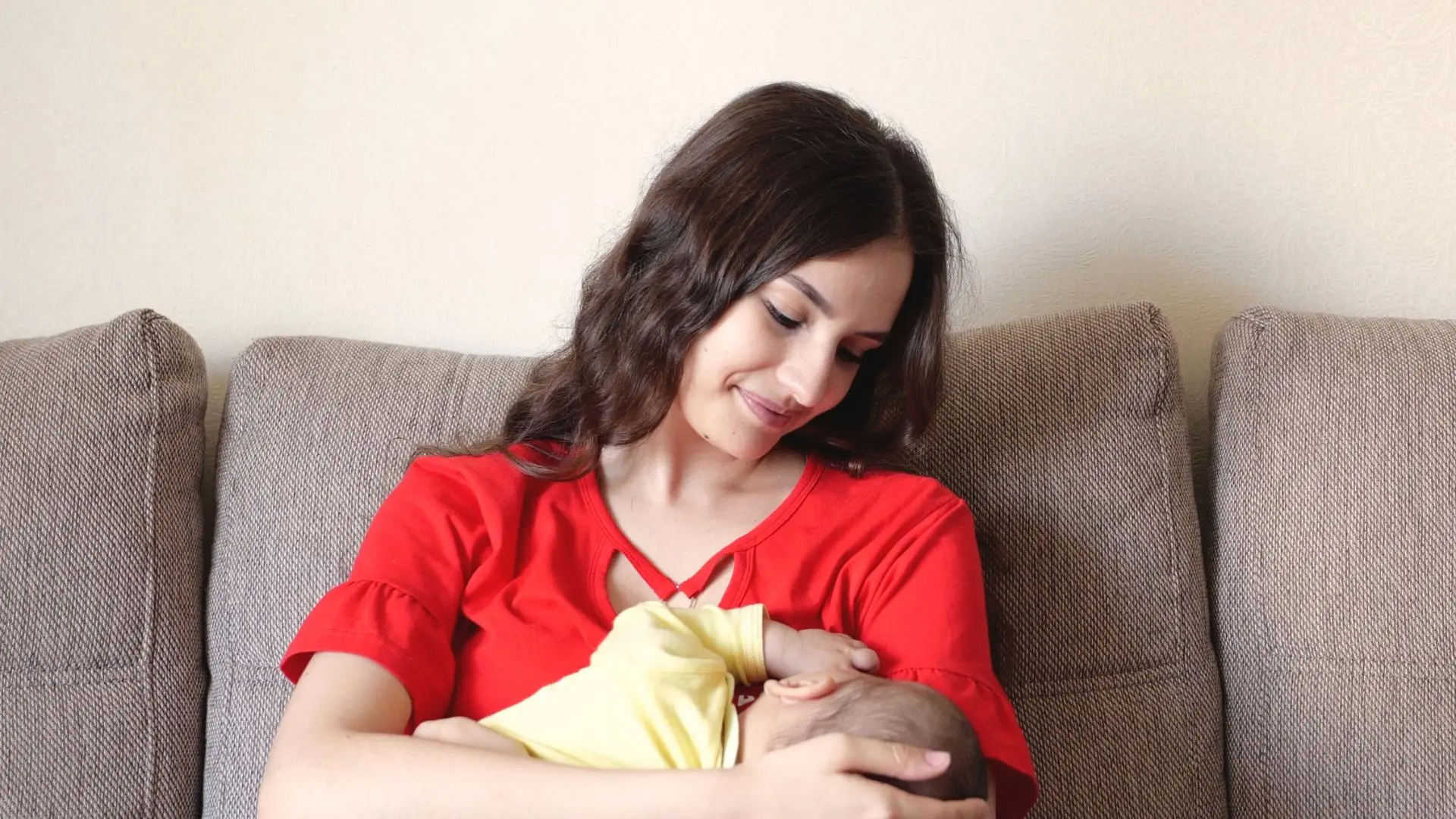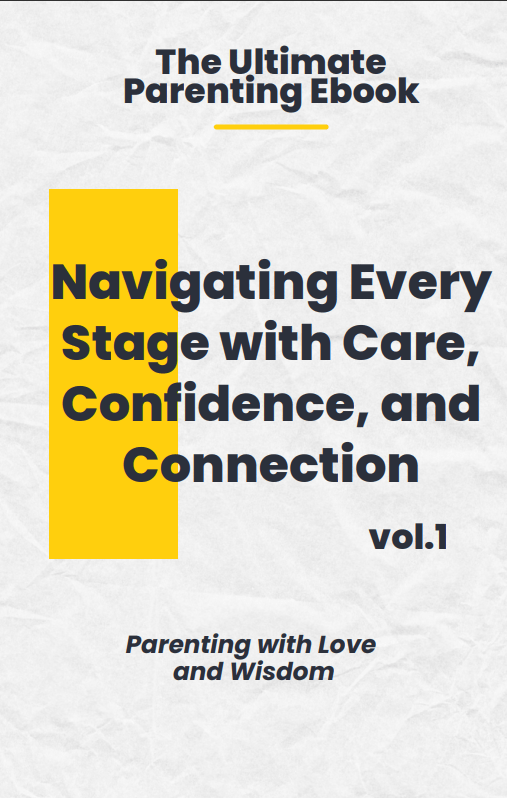As a parent, you’ve probably seen how hard it is for your teenager to get a good night’s sleep. From late-night study sessions to social media scrolling, teenage sleep problems are more common now than ever before, and they’re more complex than just “staying up late.” Lack of sleep affects nearly every part of a teen’s life, including their health, mood, and even academic performance.
If you’re looking to understand what’s really happening behind the scenes and how to help your teen sleep better, this guide is for you.

In This Blog
ToggleUnderstanding Teenage Sleep Patterns and Their Unique Challenges
Why Teens’ Sleep Needs Are Different
Teenagers aren’t just adults with smaller bodies—they have unique biological clocks that influence how they sleep. During adolescence, teens experience a natural shift in their circadian rhythms, often referred to as “sleep phase delay,” where they feel alert later in the evening and want to sleep later in the morning.
This means that even if they get into bed early, falling asleep can be challenging, especially if they’re trying to keep up with school, sports, and social life. Experts recommend 8-10 hours of sleep for teenagers, but teenage sleep problems mean that most teens fall short.
Common Teenage Sleep Disorders and Symptoms to Watch For
If you’re worried that your teen’s sleep issues go beyond typical late nights, you’re not alone. Common sleep disorders in teens include insomnia, delayed sleep phase syndrome (DSPS), and even sleep apnea. Here are some signs of sleep disorders in teens that may suggest a deeper issue:
- Difficulty falling asleep or staying asleep
- Extreme drowsiness during the day, even with enough sleep hours
- Behavioral issues like irritability or trouble focusing
- An increased dependency on caffeine or energy drinks
These are the “red flags” to watch out for, as they can be the early signs of deeper sleep disorders in adolescents.
Causes of Sleep Disorders in Teenagers

Biological Changes During Adolescence
It’s not your imagination—teens genuinely have different sleep needs, thanks to biological changes. As their bodies start to mature, melatonin, the “sleep hormone,” is released later at night than in younger kids or adults. This change in melatonin release directly impacts teenage sleep problems, making it difficult for them to feel sleepy until much later.
External Factors Impacting Teen Sleep
Modern life comes with its own set of challenges that make sleep disorders in teenagers even worse. Let’s look at a few factors impacting teen sleep quality.
Screen Time and Technology Use Screens are a significant part of the teen experience. From smartphones to laptops, teens often have a hard time disconnecting before bed, which can lead to serious sleep problems in teens. The blue light emitted by screens interferes with melatonin production, making it even harder for teens to wind down.
Academic and Social Pressures School can feel like a non-stop cycle of assignments, exams, and group projects, and the pressure to keep up can be overwhelming. Many teens push their sleep to the side in favor of finishing a paper or studying for a test, leading to ongoing teenage sleep problems.
Mental Health and Stress If your teen is dealing with anxiety, depression, or other stressors, it’s essential to know that these can directly affect their sleep quality. Insomnia in teens is often linked to stress and mental health issues, creating a challenging cycle: poor sleep can worsen mental health, and poor mental health can worsen sleep.
Impacts of Sleep Disorders on Teen Health and Development
When teenage sleep problems are ongoing, they can impact nearly every area of your teen’s life. Here are some ways poor sleep can affect their mental, physical, and academic health:
Mental Health Consequences
Lack of quality sleep can make teens more susceptible to depression, anxiety, and mood swings. Research shows that poor sleep exacerbates existing mental health issues, making it harder for teens to manage stress and stay positive.
Physical Health Risks
Teens who don’t get enough sleep are more likely to experience weakened immune systems, lower physical endurance, and higher risks of long-term health conditions. Chronic sleep deprivation is also linked to obesity and diabetes—serious concerns when addressing sleep problems in teens.
Cognitive and Academic Effects
Teenagers and sleep are inseparably linked when it comes to focus, memory, and problem-solving. Teens struggling with sleep disorders may have trouble with concentration, leading to lower grades and academic challenges. In some cases, a simple lack of sleep can hold a bright, motivated teen back.
Practical Tips to Overcome Sleep Disorders in Teens
Now that we know how teenage sleep problems arise, let’s dive into practical solutions to help your teen develop healthier sleep habits.
Developing a Consistent Sleep Routine
Help your teen set a bedtime and wake time that they stick to, even on weekends. Consistency can help their body get used to a healthy sleep cycle, which is essential for beating sleep disorders in teenagers.
Limiting Screen Time Before Bed
Encourage your teen to turn off all screens at least an hour before bed to prevent blue light from disrupting melatonin. You can help by setting a family rule about no screens in the bedroom or using features that dim screen brightness automatically at night.
Creating a Relaxing Pre-Sleep Environment
Consider adding calming rituals like reading a book or using dim lighting to create a peaceful environment. Making the bedroom a tech-free, relaxing space can help teens associate it with rest rather than alertness.
Mindfulness and Stress-Management Techniques
Stress and anxiety can be significant contributors to sleep problems in teens. Encourage your teen to try deep breathing exercises, journaling, or guided meditation to manage pre-sleep stress. These small steps can go a long way in improving insomnia in teens and helping them relax.
When to Seek Professional Help for Teenage Sleep Disorders
If you’ve tried everything and teenage sleep problems persist, it may be time to seek professional help. Here’s what to look for and where to find support.

Signs That Professional Help May Be Needed
If your teen continues to struggle with sleep despite trying various solutions, or if you notice signs like extreme mood swings, excessive daytime fatigue, or academic struggles, consider reaching out for additional support.
Options for Professional Support
Options for help include Cognitive Behavioral Therapy for Insomnia (CBT-I), which has been shown to be effective in treating insomnia in teens, or a sleep clinic that specializes in sleep disorders in adolescents. These professionals can offer structured, evidence-based support to help improve your teen’s sleep.
Importance of a Holistic Approach with Family Involvement
When facing sleep problems in teens, a holistic approach often brings the best results. Family support and understanding play a crucial role, and having open conversations with your teen about sleep, stress, and boundaries can make a real difference.
Conclusion
Addressing teenage sleep problems isn’t easy, but it’s essential. By understanding the causes of sleep issues, being aware of the signs, and taking proactive steps, you can help your teen develop habits that will benefit them long-term. Sleep is a cornerstone of health, and prioritizing it now means setting your teenager up for a brighter, healthier future.
Encourage your teen to try out some of these strategies and remind them that their health and happiness are the ultimate goals. If you’ve got any insights or have tried certain solutions with your teen, feel free to share your experience.
And remember, professional help is always available if you need it—there’s no harm in reaching out for support when it comes to ensuring your teen gets the sleep they need.
You may also be interested in : How to Handle an Out of Control Teenager: Best Interest Solutions for Parents and Teens
FAQs
1. What are the main causes of teenage sleep problems?
Teenage sleep problems are primarily caused by biological clock shifts, increased academic pressures, social obligations, and excessive screen time, especially before bed. These factors collectively disrupt teens’ natural sleep-wake cycles, making it difficult for them to fall asleep and get the recommended 8-10 hours of rest.
2. How much sleep do teenagers need each night?
Teens typically need 8-10 hours of sleep each night to support their mental, physical, and emotional health. This amount helps maintain focus, academic performance, and emotional stability. However, due to sleep disorders and lifestyle factors, many teens fall short of this recommendation, contributing to teenage sleep problems.
3. How does screen time affect teenage sleep problems?
Screens emit blue light, which delays melatonin production—the hormone responsible for sleep. When teens use devices at night, their bodies struggle to enter sleep mode, worsening teenage sleep problems. Reducing screen time an hour before bed can improve sleep quality significantly.
4. Can teenage sleep problems impact mental health?
Yes, poor sleep can exacerbate anxiety, depression, and mood swings in teens. Sleep deprivation impacts neurotransmitters that regulate mood, leading to emotional instability. Addressing teenage sleep problems can improve both sleep quality and mental health.
5. What are signs that a teen may have a sleep disorder?
Signs include difficulty falling asleep, daytime sleepiness, irritability, academic issues, and dependence on caffeine. Persistent signs may indicate underlying sleep disorders, which contribute to teenage sleep problems and require intervention.
6. How can stress contribute to teenage sleep problems?
Stress releases cortisol, a hormone that keeps teens alert, preventing restful sleep. High academic and social pressures elevate stress levels in teens, disrupting their natural sleep cycles and increasing the likelihood of teenage sleep problems.
7. What is delayed sleep phase syndrome (DSPS) in teens?
DSPS is a circadian rhythm disorder where teens feel sleepy much later than usual, making it hard to sleep and wake up at conventional times. DSPS is common in teenage sleep problems, often requiring behavioral adjustments.
8. How does poor sleep impact academic performance in teens?
Poor sleep impairs concentration, memory, and decision-making skills, all essential for learning. Teens with sleep issues often struggle academically, as teenage sleep problems can lead to reduced cognitive performance and lower grades.
9. Are teenage sleep problems linked to obesity?
Yes, sleep deprivation affects hormones regulating hunger, leading to overeating. When teens sleep poorly, they are more likely to crave high-calorie foods, linking teenage sleep problems to weight gain and even obesity.
10. What are some practical solutions to improve teenage sleep problems?
Encouraging a consistent sleep schedule, reducing screen time before bed, creating a calming bedtime routine, and practicing mindfulness can help teens overcome teenage sleep problems and sleep better.
11. How can I create a sleep-friendly environment for my teen?
Ensure their room is dark, quiet, and cool, with minimal electronic devices. Establishing a calm, comfortable bedroom setting can promote relaxation and ease teenage sleep problems.
12. When should I seek professional help for my teen’s sleep issues?
If your teen experiences chronic sleep disturbances, extreme daytime fatigue, mood changes, or academic struggles, consult a sleep specialist. Persistent teenage sleep problems may require professional guidance.
13. What role does diet play in teenage sleep problems?
A diet high in sugar and caffeine disrupts sleep, while a balanced diet helps regulate sleep cycles. Avoiding caffeine and sugary snacks in the evening can minimize teenage sleep problems and improve rest quality.
14. How can parents help teens manage their sleep?
Encourage healthy sleep habits, set technology boundaries, and support stress management practices. Parental involvement can make a significant difference in overcoming teenage sleep problems.
15. Are naps beneficial for teens with sleep problems?
Short naps (20-30 minutes) can help reduce daytime sleepiness without disrupting nighttime sleep. However, long naps can worsen teenage sleep problems by making it harder to sleep at night.
16. What are the health risks of chronic sleep problems in teens?
Chronic sleep problems increase risks of depression, obesity, diabetes, and weakened immunity. Addressing teenage sleep problems early is crucial for preventing long-term health issues.
17. How does exercise affect teenage sleep problems?
Regular physical activity promotes deeper sleep, reducing teenage sleep problems. Encourage daily exercise, but avoid strenuous activity close to bedtime, as it can be overstimulating.
18. What is Cognitive Behavioral Therapy for Insomnia (CBT-I)?
CBT-I is a treatment that helps teens manage insomnia by addressing unhelpful thoughts and behaviors. It’s effective for treating teenage sleep problems by reshaping sleep habits and improving rest quality.
19. How does melatonin supplementation affect teenage sleep problems?
Melatonin can help teens with delayed sleep phase syndrome fall asleep earlier. However, consult a healthcare provider, as melatonin is not a cure-all for teenage sleep problems and may have side effects.
20. Can teenage sleep problems affect family dynamics?
Yes, a teen’s poor sleep can lead to mood swings, irritability, and conflicts, impacting family relationships. Understanding and supporting your teen’s sleep needs can ease tension and promote healthier interactions.




